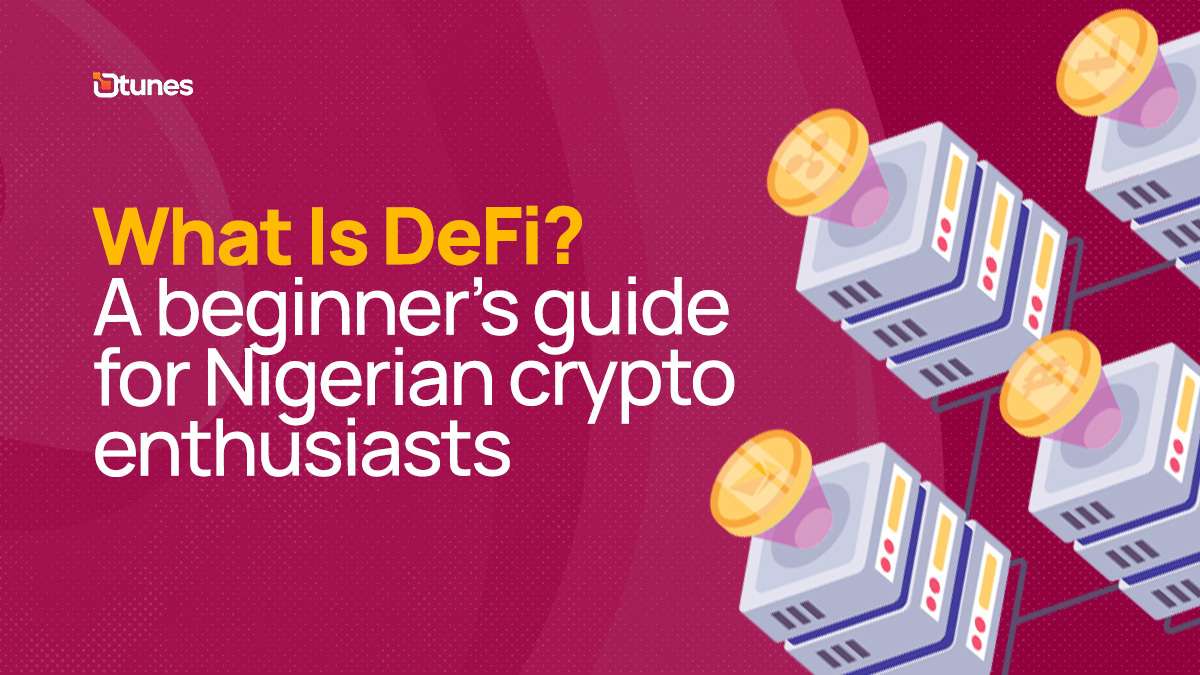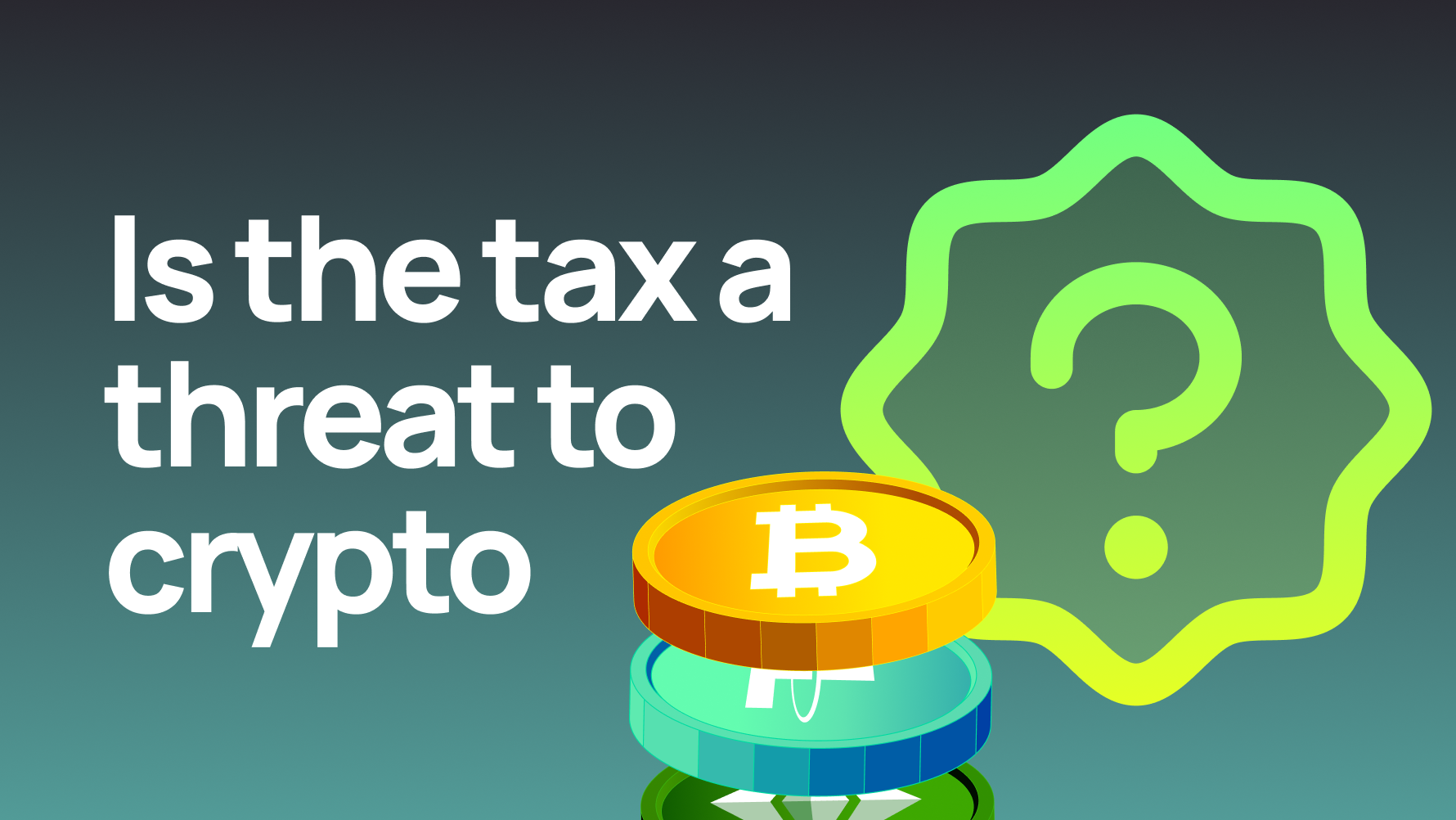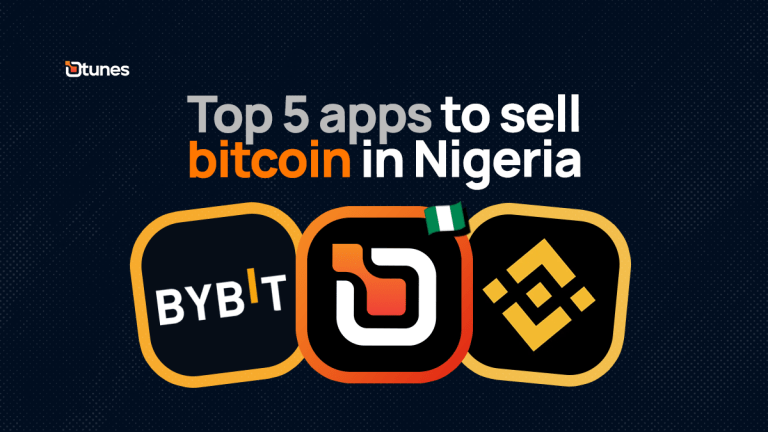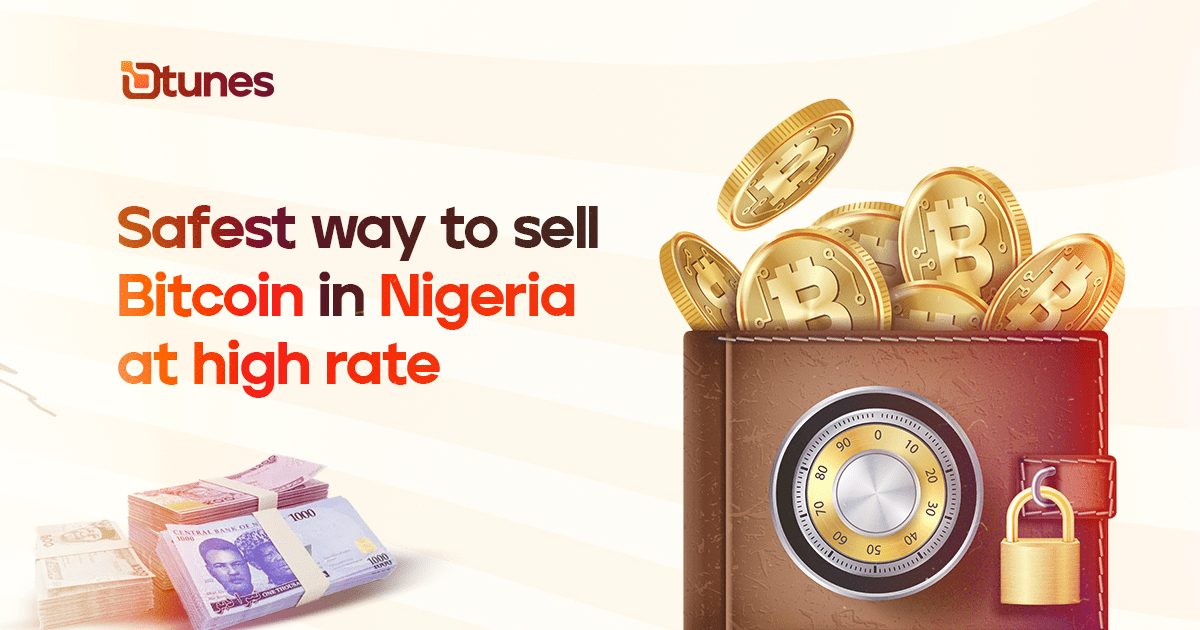
What Is DeFi? A Beginner’s Guide for Nigerian Crypto Enthusiasts
Let’s Start Simple
Banks love control.
They decide how much you can withdraw.
They charge you fees even when you didn’t move a kobo.
And if you want to send money abroad? Get ready for stress, paperwork, and restrictions.
Now imagine a system where there’s no banker blocking you. No “network issues.” No limits on when or how you use your money.
That’s the promise of DeFi.
It sounds fancy, but at its core, DeFi simply means finance without middlemen.
And for Nigerians dealing with inflation, FX scarcity, and online spending limits, that’s a big deal.
So, What Is DeFi?
DeFi stands for Decentralized Finance.
Think of it as the cousin of crypto, but instead of just holding coins, you can actually use them. With DeFi, regular financial services—like lending, borrowing, saving, and investing—happen on the blockchain instead of in banks.
The magic tool? Smart contracts. These are self-executing codes that handle transactions automatically once conditions are met.
For example:
- In a bank, you apply for a loan, wait for approval, sign forms, and maybe even bring guarantors.
- In DeFi, a smart contract just checks your collateral and gives you the loan instantly.
It’s like skipping the bank manager and going straight to business.
Why Should You Care as a Nigerian?
Because our financial struggles are real.
- Inflation: The naira’s value keeps dropping. Money saved in banks loses power every year.
- Transfer limits: Ever tried to shop online internationally with a Nigerian card? The $20–$100 spending limit is frustrating.
- High fees: From “card maintenance” to “SMS alert,” banks eat into savings.
- Credit access: Loans are tough to get unless you know somebody inside.
DeFi offers a workaround.
- Stablecoins like USDT or USDC protect your money from naira depreciation.
- You can send money abroad without begging for Form A or standing in a long bank queue.
- You can earn better returns than the 1–2% banks give on savings accounts.
For many Nigerians, DeFi feels like taking power back.
How Does DeFi Work?
Here’s the flow, simplified:
- Start with crypto. You need coins like Ethereum, USDT, or BNB.
- Get a wallet. Apps like Trust Wallet or MetaMask hold your coins securely.
- Connect to a DeFi app (dApp). These platforms let you interact directly with the blockchain.
- Choose your activity. Do you want to trade, lend, borrow, or save?
- Smart contracts execute the deal. No waiting. No permission. Just instant transactions.
Example: You deposit USDT into a DeFi lending pool. Instantly, the smart contract starts paying you interest from borrowers using that pool. No paperwork, no excuses.
What Can You Actually Do With DeFi?
DeFi is a toolbox. Here’s what’s inside:
- Lending and Borrowing
Imagine lending your USDT to a DeFi platform. Someone else borrows it, and you earn interest daily. Flip side? You can also borrow by putting up some of your coins as security. It’s like pawning your gold chain but in the digital space. - Trading on DEXs (Decentralized Exchanges)
Binance is popular, but it’s centralized. Uniswap, PancakeSwap, and similar DEXs let you swap tokens directly with other users. No sign-up. No KYC stress. - Staking and Yield Farming
Fancy names for “lock your crypto and get rewarded.” Higher potential earnings than banks—but also higher risks if token prices fall. - Stablecoins
These are life savers. Coins like USDT or USDC are pegged to the dollar, meaning 1 USDT = $1. For Nigerians, it’s a way to escape the naira’s free fall. - Savings and Insurance
Some platforms offer savings vaults with higher interest. Others even give insurance against hacks or failed contracts.
In short: with DeFi, your phone becomes a bank.
Is DeFi Safe?
Frankly, It’s not a safe haven.
Yes, it’s transparent—everything is on the blockchain. But risks are everywhere:
- Scams: Many fake DeFi projects appear legit but run away with people’s money (aka rug pulls).
- Hacks: Even billion-dollar platforms have been hacked.
- Volatility: Crypto values can swing wildly in a day. Imagine saving $100 today and seeing $60 tomorrow.
- Complexity: One wrong transaction (like sending to the wrong address) and your money is gone for good. No customer care to call.
So here’s the rule: Don’t invest money you can’t afford to lose.
Start small. Learn slowly. Double-check everything.
How to Start With DeFi in Nigeria
If you’re curious, here’s your roadmap:
- Get a wallet. Download Trust Wallet or MetaMask. They’re free.
- Buy crypto. Use Nigerian platforms like Quidax or P2P on Binance. Start with USDT—it’s stable.
- Pick a dApp. If you want to lend or borrow, check Aave. For trading, Uniswap or PancakeSwap.
- Connect your wallet. Usually one click. No forms.
- Test small. Start with $10 or $20 worth of USDT. Stake it, trade it, or lend it.
As you get comfortable, you can expand. But always move with sense.
Should You Jump In?
Don’t rush because your friend said he “cashed out.”
DeFi is opportunity plus risk.
Ask yourself:
- Do I know how crypto wallets work?
- Can I afford to lose what I put in?
- Am I willing to learn instead of chasing shortcuts?
If yes, then take baby steps. Because FOMO (fear of missing out) has ruined plenty of Nigerians in crypto.
Here’s The Bigger Picture
Nigeria is one of the top countries in crypto adoption worldwide. People are already using USDT to protect their savings, to pay freelancers, and even to shop online.
DeFi pushes this further. It gives:
- Access to global financial services.
- Protection from naira’s fall.
- A chance to grow wealth outside the traditional banking system.
It’s not perfect. But it’s powerful.
So,
DeFi is like the wild west—full of opportunities, but also full of traps.
For Nigerians, it could mean:
- Real control over money.
- Better returns than local banks.
- A new way to beat inflation and FX restrictions.
But only if you move smart.
Start small. Stay informed. Don’t let greed drive you.
Because in DeFi, knowledge isn’t just power—it’s profit.
Godwin has spent the last 5 years making SEO magic happen and now leads as SEO Manager at Dtunes. When he’s not tweaking search rankings, you’ll catch him vibing to music, playing games, or hanging out with friends.




